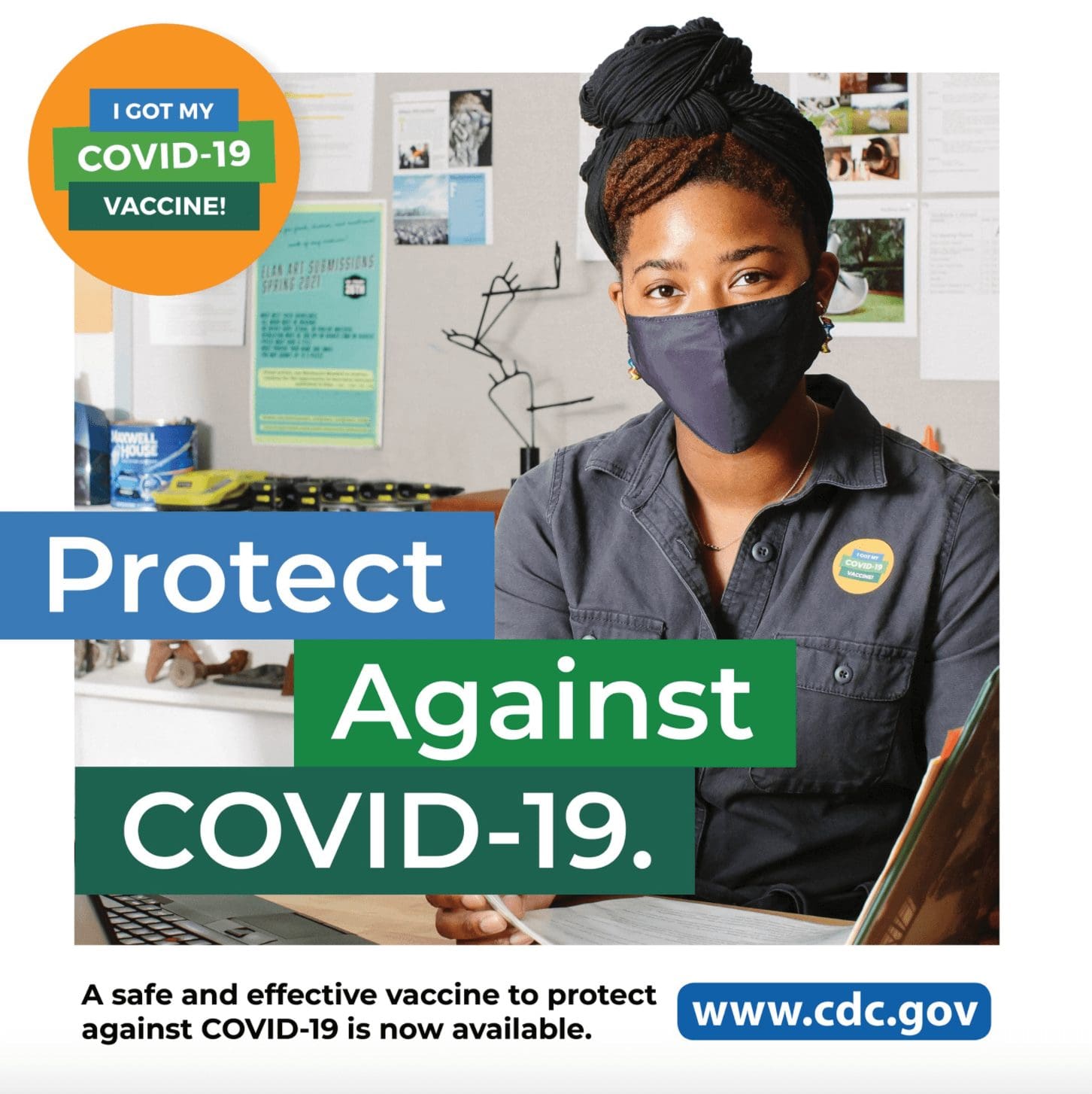(SAVANNAH, GA) Healthy Savannah and YMCA of Coastal Georgia have been awarded $544,000 in supplemental grant funding by the Centers for Disease Control and Prevention. The funds will be used to broaden the initiatives of the current Racial and Ethnic Approaches to Community Health (REACH) grant to focus on COVID-19 vaccine education, awareness, and acceptance.
“Our goal in administering this funding is to promote activities that support acceptance among racial and ethnic minority groups experiencing disparities in vaccination coverage in Savannah and Chatham County,” said Paula Kreissler, executive director of Healthy Savannah. “We are working with established partners to meet those goals by strengthening connections, building confidence and breaking down barriers to access.”
Funded partners currently include the African American Health and Information Resource Center, Coastal Health District/Chatham County Health Department, Curtis V. Cooper Primary Health Care, EPIC Health Solutions, Healthy Savannah Faith and Health Coalition, J.C. Lewis Primary Health Care Center, SJC St. Mary’s Health Center/Good Samaritan Clinic, Carriage Trade Public Relations, and Next Step Evaluation.

Overall, the objectives of the program are to identify influential community messengers and partners and to develop community-acceptable approaches for improving vaccination availability, accessibility, and confidence. Kreissler says strategies will include equipping influential messengers through education and empowerment of trusted voices in the community to support vaccine education and delivery while also increasing vaccination opportunities and building partnerships between vaccination providers and the community to increase the number, range, and diversity of opportunities for vaccination.
“The reality is that people in Latino and Black communities are not getting COVID-19 vaccines at the same rates as whites,” said Elsie Smalls, PhD, operations manager. “Some of this is a matter of access but the bigger obstacle to acceptance for many is based on their suspicions of the healthcare system or government agencies as a whole. In many ways, we’re just beginning to fully understand the depth of those concerns because of what has come to light about how African Americans were once treated in the U.S. and even right here in Savannah.”
The Tuskegee Experiment, conducted between 1932 and 1973, was designed to observe untreated syphilis in Black men in Macon County, Alabama. Although the men who participated in the study were told that they were receiving free health care from the federal government of the United States, they were not and they were never offered treatment, which was widely available after 1947.
In Savannah, a classified military operation in the 1950s dropped hundreds of thousands of mosquitoes on the Black neighborhood of Carver Village. The secret experiment was declassified in 1980, at which time it was revealed that “Operation Big Buzz” was conducted to test the viability of deploying mosquitoes as a delivery system of disease warfare. Many believe the mosquitos used in the operation were infected with disease.
“While our goal is to elevate vaccine acceptance, we realize there is much to do to raise the level of trust,” said Nichele Hoskins, communication manager. “We’ll do our part by responding to the concerns and questions of those hardest hit by COVID 19 with information backed by science so they can make the best decisions for themselves and their families. We will also work to be sure the medical community understands and addresses the trust gap.”
ABOUT THE SUPPLEMENTAL RACIAL AND ETHNIC APPROACHES TO COMMUNITY HEALTH (REACH) GRANT
On December 27, 2020, the President signed into law the FY 2021 Coronavirus Response and Relief Supplemental Appropriations Act of 2021 (P.L. 116-260), which includes supplemental funding for coronavirus vaccine activities to support broad-based distribution, access and vaccine coverage. Resources are focused on planning and preparing for the administration of COVID-19 vaccines, supporting the implementation of the COVID-19 vaccine program, expanding the existing immunization infrastructure, engaging in additional partnerships, and implementing and evaluating new strategies to reach affected populations, such as those who may be vaccine hesitant and those who are in racial and ethnic or other minority groups. The supplemental grant funds awarded to the YMCA of Coastal Georgia and Healthy Savannah must be spent/expended within an 18-month performance and budget period from April 1, 2021, to September 30, 2022. Local program administrators are Paula Kreissler, project director, paula@healthysavannah.org; Nichele Hoskins, communication manager, nichele@healthysavannah.org; and Elsie Smalls, PhD, operations manager, elsie@healthysavannah.org. healthysavannah.org ymcaofcoastalga.org.
MEDIA CONTACT
Marjorie Young
Carriage Trade Public Relations® Inc.
912.844.9990
www.carriagetradepr.com
marjorie@carriagetradepr.com
